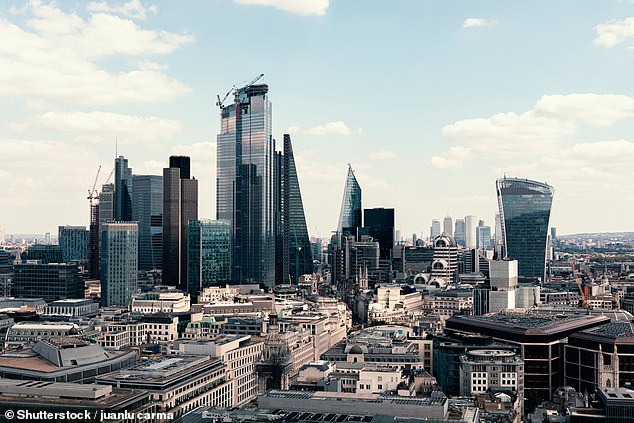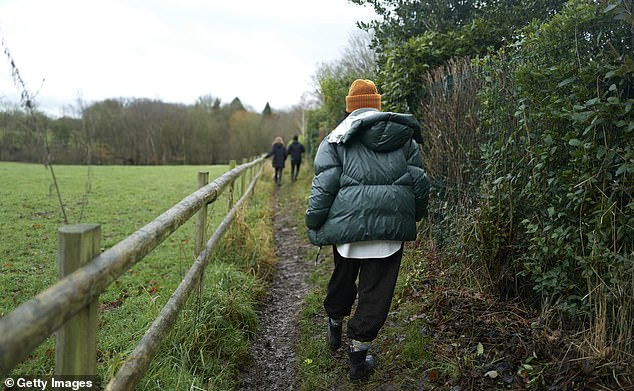Having a country walk can improve your mood, decrease stress and stop time rushing by, scientists say
- Time goes slower immersed in the natural world, while cities make us 'time poor'
If you feel like there are never enough hours in the day, try taking a walk in the great outdoors.
Spending time in green spaces has in recent years been confirmed by scientists to have a cheering effect, reducing levels of depression and anxiety.
But now an intriguing body of research suggests that it helps us by slowing down our perception of time.
While life in the city makes us feel 'time poor', research by psychologist Ricardo Correia at the University of Turku in Finland has found that immersion in the natural world actually seems to slow things down.
Professor Correia comparing how people experience time in urban and natural settings and found time seems to expand in the countryside.

Spending time immersed in nature reduces levels of depression and anxiety, scientists say (file image)

Unlike urbanised areas which make us 'time poor', nature appears to slow down time (file image)
One example is people perceived a walk in the countryside as taking longer than a walk of the same length in the city. And people who spend time amid greenery estimate that they have spent a longer time there than in a built-up area.
In a research paper called 'Time grows on Trees', Mariya Davydenko of Carleton University, Canada and colleagues found a walk in a park 'felt slower in nature than in man-made settings' as well as improved mood and decreased stress.
They wrote in The Journal of Environmental Psychology: 'When one is trying to make the most of one's time, spending it on a pleasant activity in nature may not only increase psychological health in a number of ways, but may also provide the illusion of having spent more time enjoying the activity than one really did.'
The researchers noted that even though participants estimated a longer duration of time, it did not drag.

People in the study perceived a walk in the countryside as taking longer than a walk of the same length in a city (file photo)

The study by Carleton University in Canada found that people who spend time in green spaces estimate they have been there longer than in a built-up area (file image)
Participants who reported feeling happier after the walk in nature said 'time flew', even though they estimated it to have taken longer.
Ruth Ogden, Professor of the Psychology of Time at Liverpool John Moores University, writing with researcher Jessica Thompson on the Conversation website said: 'It's not just our sense of time in the moment which appears to be altered by the natural world, it's also our sense of the past and future.
'Previous research shows that spending time in nature helps to shift our focus from the immediate moment towards our future needs. So rather than focusing on the stress of the demands on our time, nature helps us to see the bigger picture.
'This can help us to prioritise our actions so that we meet our long-term goals rather than living in a perpetual state of “just about keeping our head above water”’.








































































































































































 Apple's iPhone 16 to get 'significant' update not seen in previous smartphones
Apple's iPhone 16 to get 'significant' update not seen in previous smartphones